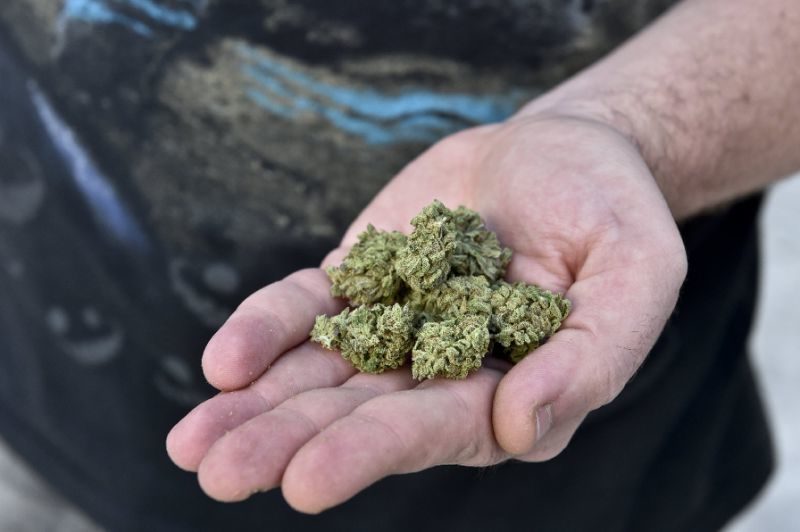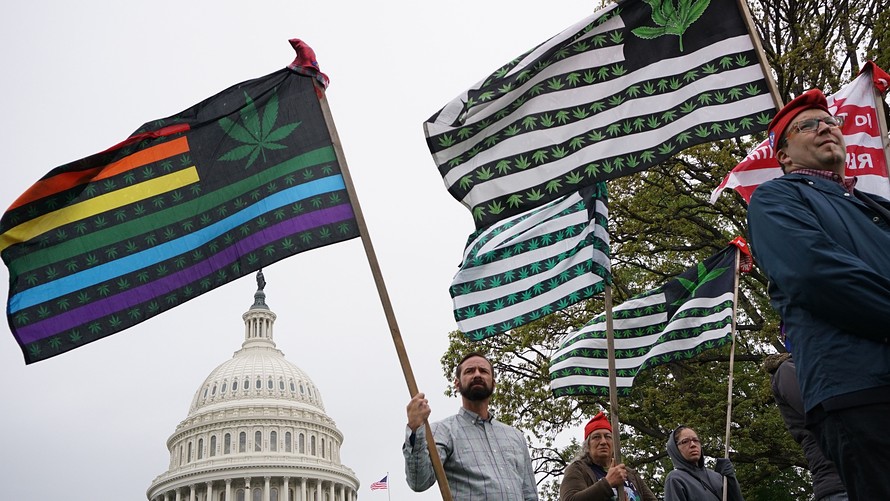Federalism – a system whereby both the national government and subnational governments have equal status – provides opportunities for states and local governments to act as “laboratories of democracy” by developing innovative policies. Federalism is also chaotic and leads to confusion. Marijuana policy is a foremost example.
Since 1996, 33 states have legalized comprehensive medical cannabis programs, and 10 of those states have further legalized recreational pot. In both cases, states are regulating the marijuana market and decriminalizing some or all adult use and possession.
But other states (including some with medical programs) and localities have stopped short of full legalization and instead have decriminalized by defining minor marijuana offenses as non-criminal infractions (9 states) or by removing the threat of jail time for minor possession (4 states).
The chaos comes in the fact that the details and practical effects of these policies on citizens vary across policy and jurisdiction.
Types of Marijuana Reforms
There are two broad types of marijuana reforms: legalization and decriminalization.
Legalization includes medical and recreational, which we have referred to as “defiant innovations” in our published work because the states not only allow for some marijuana use, but they also actively enable a marketplace to form with growers, manufacturers, and dispensaries. In all of these legal systems, enforcement of marijuana is regulated at the state level.

Decriminalization is different. Rather than legal markets that facilitate the creation of a new industry, decriminalization simply diverts policing resources from marijuana enforcement to other priorities. Possession of pot often yields a fine from police and/or some short jail time instead of longer prison sentences and all of their related expenses. Decriminalization often occurs at the local level but has also been adopted by states.
While even our description makes it seem like there are three distinct policy approaches (no reform, legalization, and decriminalization), the truth is not as clear cut. States vary a great deal in how they regulate their medical and/or recreational systems.
More recent adopters of medical marijuana, for instance, tend to be more restrictive with how, where, why, and by whom medicinal cannabis can be used. In the case of decriminalization, some jurisdictions have been more ambitious by expunging (erasing or sealing) the criminal records of past drug offenders. Given that decriminalization often begins at the local level, there can be tensions between how far a state will allow localities to go.
Racial Justice and Decriminalization
It is no secret that there are vast racial disparities in the American criminal justice system. Decriminalization policies might be the fastest and most effective way to address racial disparities in marijuana enforcement. Politicians often cite racial differences in marijuana arrests when promoting decriminalization.
Given that many changes start at the local level rather than the state level, cities with diverse populations can unilaterally change the possession laws and penalties within their jurisdictions. This has allowed for cities like Houston and Milwaukee to pass reforms in spite of little state support.
But marijuana liberalization is not a racial panacea. While many have celebrated the burgeoning legal marijuana market, others have noted that the market is dominated by white owners. And people of color have fewer opportunities to capitalize on the market, between policies barring entrepreneurs with drug convictions and prohibitive startup costs made worse by difficulty accessing loans from banks.
This double standard was best captured in a photo posted by American singer Billy Ray Cyrus of his wife standing in front of several bags of marijuana captioned “my how the times are a changing.”
https://twitter.com/billyraycyrus/status/1096511063149862912
Journalist Soledad O’Brien responded: “Think of all the people incarcerated right now on marijuana charges. And you wonder why so many people understand that criminal justice is often neither fair nor just.”
Snowball Effect
A benefit of both chaotic innovation and local autonomy to act is the potential for local governments to influence broader policy. From plastic bag bans to smoking bans in the United States, local government actions in some states snowball and put pressure on state governments to make local ordinances uniform.
Local governments have taken the lead on marijuana decriminalization. Philadelphia, for example, decriminalized pot two years before Pennsylvania adopted medical marijuana.
Recently, the chief prosecutor for the city of Baltimore announced that her office will no longer prosecute residents for marijuana possession. This goes further than the statewide law that decriminalized the possession of 10 grams or less of pot in 2014.
Consequences of Policy Chaos
Policy chaos also has dire consequences. In Cuyahoga County (Cleveland), police brutally beat a citizen over the possession of one blunt. The altercation escalated because the victim did not know that he was in one of only two municipalities in Cuyahoga County that had not decriminalized. The fact remains that possessing the same amount of marijuana yields substantially different effects depending on a citizen’s location. Some are subject to no action by the government, and others face significant jail time.
Thus, a classic paradox in federal systems is that states and localities can leverage the benefits of trying local solutions to problems while also producing vast inequalities in the effects of divergent policies.
Disclaimer: The views and opinions expressed here are those of the author and do not necessarily reflect the editorial position of The Globe Post.





















